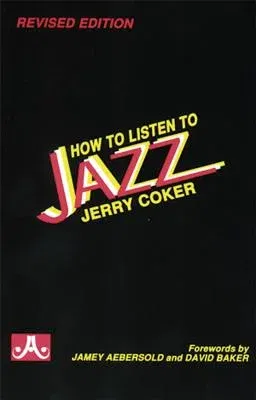Since 1900, when jazz---a uniquely American music form---began to
evolve, much of its allure and artistic growth has depended on the
creative freedom and expressive force that improvisation allows its
performers. Jerry Coker (a teacher, composer/arranger, and noted
saxophonist) has written How to Listen to Jazz to fill the need for a
layman's guide to understanding improvisation and its importance in the
development of this artistically rich yet complex music form. Without
relying on overly technical language or terms, Jerry Coker shows how you
can become a knowledgeable jazz listener---whether you are an aspiring
musician, student, jazz aficionado, or new listener.
In addition to looking at the structure of jazz and explaining what
qualities to look for in a piece, the author provides a complete
chronology of the growth of jazz, from its beginnings in the rags of
Scott Joplin; the New Orleans style of the 1920s made famous by Bessie
Smith, Bix Beiderbecke, and Louis Armstrong; the Swing Era with Benny
Goodman, and Art Tatum; Be-Bop, post Be-Bop; to the greats of Modern
Jazz, including Miles Davis, Herbie Hancock, Freddie Hubbard, and Wes
Montgomery.
Also includes a list of suggested recordings, a section on the
improvised solo, and a complete glossary of jazz terms, How to Listen to
Jazz offers you a complete introduction to the entire jazz experience .
. . the music and those who make it.

